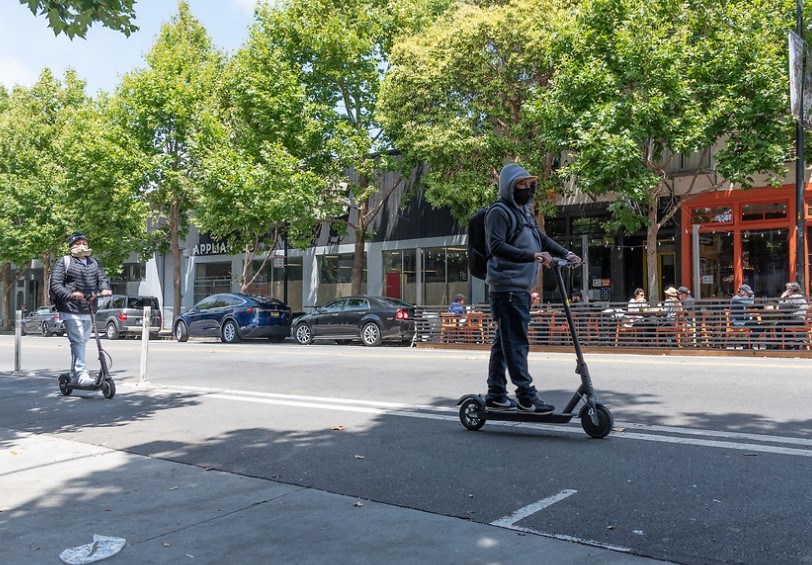By Philip Cranna
The SFMTA is seeking public input as we prepare for the next round of Powered Scooter Share Program permits. We are holding an online meeting at 4:00 p.m. on Thursday, January 14th and also have an online surve for feedback.
The current permits for Scooter Share expire in April 2021. We expect to issue the next round of permits to take effect as soon as the current permits expire. To improve the program, the SFMTA is considering updates and wants to hear from the community about:
- Community engagement requirements: adding a mobility justice training requirement and additional outreach requirements
- Distribution requirements: emphasizing the importance of ensuring that all neighborhoods in San Francisco are served by scooters
- Adaptive scooter program requirements: transitioning from an adaptive pilot requirement to an improved accessibility requirement
The SFMTA is committed to fostering an urban environment where sustainable modes of travel are desirable, accessible, and preferred over operating a private vehicle.

Scooter riders along Valencia Street
Background on 2019 Powered Scooter Share Permit Program
The SFMTA issued permits to four companies, Spin, Scoot, Lime and Jump to operate for a one- year term, beginning October 15, 2019. Due to the COVID-19 pandemic, the permits were extended by six months to April 2021.
Recent SFMTA authorization also enabled scooter companies to deploy more scooters and expand into new neighborhoods across San Francisco. This expansion aligns with the agency’s commitment to equity by increasing access to sustainable modes of transportation in underserved areas. Scooters offer an efficient travel choice that is environmentally friendly and fills transportation gaps for many. With reduced Muni service and returning traffic congestion, the city is focused on promoting sustainable ways to get around.
Companies Expanding
Spin was the first company to expand its fleet, by adding 500 scooters in September 2020. With the increase, Spin is authorized to deploy up to a total of 1,500 scooters and is required to meet a minimum distribution of scooters in three more neighborhoods: Inner/Central Richmond, Inner/Central Sunset and the Haight.
Lime acquired Jump in June 2020, and because both companies held a permit Lime is now authorized to operate up to 2,000 scooters. Their permit requires Lime to meet a minimum distribution of scooters in the Richmond and Sunset neighborhoods.
Increased Enforcement and Transparency
As the scooter companies’ fleets expanded, the SFMTA also increased our enforcement and monitoring of scooter share to address compliance and safety issues. For transparency in our effort to increase enforcement sweeps and respond to complaints, we’ve published a Scooter Share enforcement dashboard.
The SFMTA is currently standardizing the process of monthly reporting, which will be available on the Powered Scooter Share Permit Program site.
Get Involved:
- Join our online meeting at 4:00 p.m. on Thursday, January 14th and give public comments
- Take our online survey to share feedback – available until Friday, January 29th.
Review the Powered Scooter Share Program website for more
Published January 13, 2021 at 11:10PM
https://ift.tt/38DI8FK
Nhận xét
Đăng nhận xét